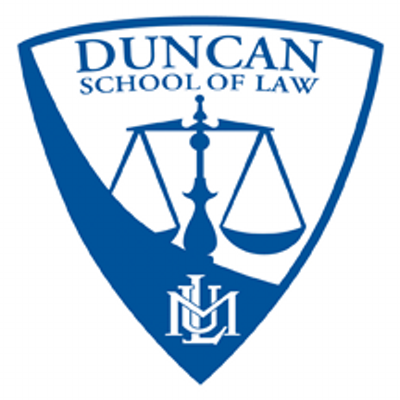Tennessee's Duncan Law back in 'substantial compliance' with admissions standard

Duncan School of Law at Lincoln Memorial University in Knoxville, Tennessee, is now in “substantial compliance” with admissions requirements that fall under Standard 501, according to a recent decision from the council of the ABA’s Section of Legal Education and Admissions to the Bar.
The law school, which has provisional approval from the ABA, in April was found to be “significantly out of compliance” with Standards 501(a) and (b), which state that schools should maintain “sound admissions policies and practices” and not admit candidates who seem like they won’t finish law school or pass a bar exam.
The April public notice also stated that the law school was found to be out of compliance with Interpretations 501-1, 501-2 and 501-3. Interpretation 501-1 deals with academic attrition and an incoming classes’ academic credentials; 501-2 focuses on admissions policies and practices; and 501-3 states that a law school with a cumulative nontransfer attrition rate higher than 20 percent is not in compliance with Standard 501.
During its recent meeting in Atlanta, the council found that Duncan Law is now in substantial compliance, a term used for schools with provisional accreditation, with Standard 501(a) and (b) as well as Interpretations 501(1), 501(2), and 501(3). The decision is based on the record and information provided by the law school, and hearing for the earlier noncompliance finding is canceled, according to the November public notice. It states that Duncan Law remains a “provisionally approved” law school.
Duncan Law has been approved by the ABA since 2014, according to its most recent Standard 509 Information Report. Its median LSAT score is 148, and its median undergraduate GPA is 3.08. Out of its first-year class, Duncan’s nontransfer attrition percentage was 22.2 percent.
Gary R. Wade, a retired Tennessee Supreme Court justice, is Duncan Law’s dean. According to him, the school’s nontransfer attrition rate for the 2017-2018 school year has dropped to 8 percent.
The school sees itself as being mission-based, he adds, and willing to take a chance on some students with lower LSAT scores and undergraduate GPAs. To do that, and be in compliance with ABA accreditation standards, Wade says, Duncan Law has ended an admissions-performance plan that’s for candidates with LSAT scores between 139 and the low 140s. This year, first-year students had LSAT scores of at least 147, and undergraduate GPAs were no lower than 2.6.
Also, since last year, Duncan Law has refunded tuition to first-year students in the lower quartile of the class who leave through attrition during the first semester.
“The real key to success was to minimize attrition and focus on coaching up the students that are at risk,” Wade says.
Regarding bar passage rates, 45 Duncan Law graduates sat for the July 2018 Tennessee exam, and the pass rate was 73.33 percent, according to the state board of bar examiners. The law school’s Tennessee bar passage rate for 2017 was 72.22 percent, according to ABA data.
Updated at 4:27 p.m. to include the quote and information from Duncan School of Law’s dean.



